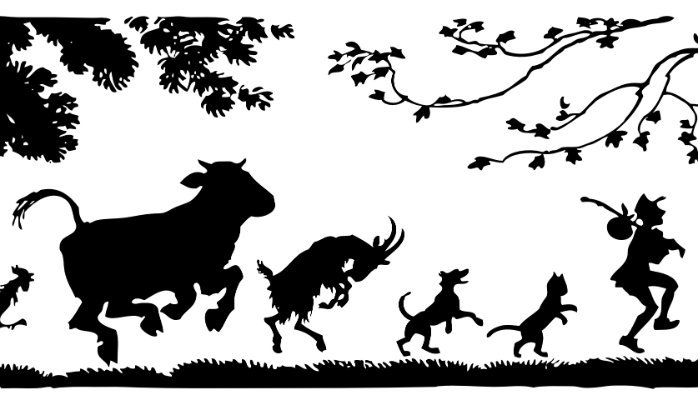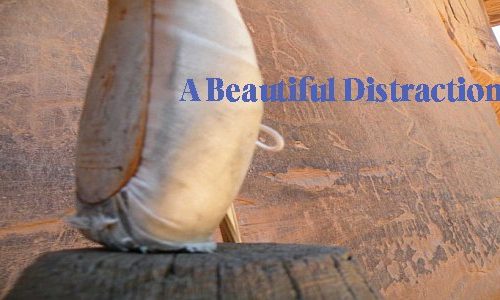
Leadership, Social Media, Community Outreach, Research and Training
Leadership, social media, community outreach, research, and training, they all mean very different things to different people. What I have learned is that you need to be able to show your work. In a job interview, that can become a very interesting prospect to have thrown at you – unaware. It’s those little questions….
- Show your work
- Show me leadership.
- Tell me how you perform community outreach.
- How many hours a day do you work in social media?
- How many social media applications can you link?
- What is content marketing for social media?
- While doing research did you actively engage in experimentation that provided you with factual data that could be useful to your organization or business?
- Training usually has some long-term benefit, plus you provide your learners with material or backup data, where do you store your assessment data?
Have we reached the end of sensibility? The honest answer is – maybe. We can’t all be social media managers. Nor can we thrive in a constant research environment without some form of monetary benefit keeping us afloat. Researching a paper is not the same as research that has value leading toward the benefit of society, or changing guiding principles for an overall operation.
Back to my initial statement, leadership, social media, community outreach, research, and training, they all mean very different things to different people.Words DO matter. Depending on the words you use, they may ultimately define your role in the working environment. They may also generate feelings, good or bad. I have learned the meaning of stress, and words that I associate with that stress are called project management and strategic planning. I’m not saying they are bad positions, but anyone who has ever been in a position where a large chunk of your daily role was finding yourself buried under a deadline – you’ll understand. They can be fun roles also; if you like the fast and furious pace that they often take. Yea…I live for that crap!
Yea…I live for that crap!
Leadership verbiage is probably way over-used by many. Leadership has to deal with taking a lead role in a project or endeavor. Leadership is not teaching someone how to turn on a computer or find information, that’s training or guidance. It’s not leading a meeting where all you do is discuss the same thing over and over again – that’s training. Leadership is more about directing others and assuming a role of authority and taking responsibility for that position. When you do community outreach, that generally entails that you have many contacts and work through those contacts to form some sort of alliance that has a similar goal. It is a bringing together of large circles of people, businesses, and community leaders for the common good.
When you do community outreach, that generally entails that you have many contacts and work through those contacts to form some sort of alliance that has a similar goal. It is bringing together large circles of people, businesses, and community leaders for the common good
Some people may have a completely different ideology about what constitutes some of the above skill sets. I have an aversion to those who claim certain skill sets that are not unique to them. On-the-other-hand, I enjoy those professionals who put Microsoft Word or Excel on your list of skills. Basically, unless I know you personally, the only thing I can pretty much assume is that you can type. I can probably glean a fair amount of information from your writings, but there has to be more. Details tend to matter.
Here are some fun little tools to test your skills. It’s all hypothetical, it won’t determine your life work. You might be a master in your craft, and end up with a weak score. It’s a reality check, but a fun one. What are you really good at? Are you too good? Can you laugh at yourself and with others when you look at your own scores?
Have fun with these freebie tests
- Mind Tools: https://www.mindtools.com/pages/article/get-started.htm
- ISeek: https://www.iseek.org/careers/assessmentsuite.html
- Central Test : http://l.centraltest.com/ct_us/online-assessment.php
- Riley Guide: http://www.rileyguide.com/assess.html
- Mind Tools: Leadership testhttps://www.mindtools.com/pages/article/newLDR_50.htm
- Take your own companies test ……………………….
When you go into an interview it is always handy to have first done a little research about the job you are applying for. True there are some professional interviewers who can buffalo their way through just about any interview scenario – but those individuals are rare. Generally, they do tend to be older and probably come over-qualified, and they know it. I hope you are not one of the ones who will discriminate against them due to age or fear they are after your job. You might be turning away your companies next Einstein. Okay, maybe not. But let’s just say your training curve will be lower if you hire them, and we know how training affects your bottom line, not to mention your stress levels.
Have fun learning what you are good at. Take a good hard look at your resume. If you have done the skills, and actually understand the meaning of the skill, leave it on there. If you have tinkered with a skill, be very cautious about misrepresenting who you are and what you do.
I’m to the point where I would like to see more companies go back to a just detailed application and lose the cover letter. I’ve seen too many cover letters that don’t necessarily represent the true individual or give me enough information that would be beneficial to my company. Another issue that clogs the process involves the use of resumes. Who really reads the resume all the way through? The federal government has a computer that reads resumes for them. You have to take a class just to know how to design a federal resume. It’s comprehensive and labor intensive.
When we did our interviews with our staff, one of us was selected to develop questions based on potential candidate resumes. A lot of companies do not do that. They read a few lines and put it back into the stack with the other resumes. I read all of ours. I was better able to gauge the sincerity of many of the candidates that we interviewed. Read those resumes, and use them to develop your questions.
I’m not a fan of traditional interviews either. I dislike the questions that immediately tell me a lot about the person holding the interview. Some really do not put a lot of thought into the interview process, and probably are just as unsure as the candidate, about what is needed. I am also not a big fan of the behavioral questionnaires either. The one question that should be banned from all interviews is, “where do you want to be in five years?” ALIVE!
Where do you want to be in five years? ALIVE!
I understand the need to ask those questions that are burning in your bosom, but geez whiz, lighten up on those older folks – okay? You gotta have a sense of lightness in an interview. If I like you and your environment – I’m going to make sure you know before I leave your office – I will be paying you a compliment. Ask people “how do you feel about this working environment”? People don’t think about the environment they are stepping into very often. That is the first thing I would look into – because you are going to be spending a lot of time there!
For the younger generation who hasn’t yet learned to respond or develop their own questions, there is a lot of feeling or emotion that determines their selections. It’s humorous to hear them talk about “I like that one”, or “I think he would be a perfect match”. Even if their skills are below the standard, they will select that person, based on emotion. Skills be damned. It is kind of a slap in the face to higher education and those with experience who are up against a younger touchy-feely kind of interviewer. Okay, to be honest, some of the older and more seasoned interviewers get emotional as well – but not as much. Still doesn’t make it right. You do want the right fit, but what are you really gaining? Tough questions that we often have to ask ourselves after the storm has settled and new staff are learning their places.
Age matters as well in some organizations. Seventy-Five percent of the staff that I hired were all older than I was. I wasn’t biased at all – the younger individual’s I interviewed did not have the qualifications for the job. I had people who were in their 60’s and even a couple in their 80’s that worked for me. I didn’t feel threatened at all. The age myth is just that – a myth. The real threat is hiring people who are NOT qualified regardless of the age.
Take your tests, rewrite your resumes, and re-evaluate your skills that you list. Your endorsements might be all smoke and mirrors if you can’t back them up in an interview. You will come away looking really bad.
I am a professional who looks for those out of the ordinary individuals who just want to work. They don’t have anything to prove, their education and experience shine through. Now that makes me all emotional in a touchy-feely kind of way; because I’ve just hired the best!
__________________________
The “As Usual” series
Content creator & writer, blogger, social and digital media advocate. JB was born with a passion for writing and instructional design. JB is the owner of Radcliff Design.


You May Also Like

Emotional and financial health. Letting go of stress.
April 24, 2023
Goals – Removing Obstacles
April 8, 2022